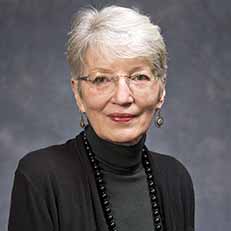BLOOMINGTON and INDIANAPOLIS, Ind. – Almost two-thirds of Indiana nonprofits have evaluated their programs over the past 36 months, including two-fifths who say their funders require such efforts, according to a new Indiana University report.
The report, “Indiana Nonprofits: Program Evaluation – Practices and Challenges,” uses data from a 2017 survey of 1,036 nonprofits that was conducted by the Indiana Nonprofits Project.
Indiana nonprofits deliver a wide range of programs that provide needed services and improve the quality of life in local communities. But needs and community conditions change over time, and funding constraints may force nonprofits to make difficult decisions about how to best meet needs with limited resources.
Program evaluation allows Indiana nonprofits to determine whether their programs are effective, meet the needs of those they serve, and support their mission. Such efforts also allow them – and their funders – to assess whether resources needed to support programs are invested appropriately and responsibly.
The report’s findings point to the importance of paying careful attention to organizational capacity for program evaluation. Staff size is an important factor in whether Indiana nonprofits evaluate their programs and how much they invest in such efforts, but so is whether nonprofits have developed the institutional culture to document, monitor, and formalize their activities.
“We find that organizational capacity factors dwarf the importance of field of activity and external forces such as demand for services, funding profile, charitable status, and location,” said Kirsten Grønbjerg, Distinguished Professor of Public Affairs at the O’Neill School and the Efroymson Chair in Philanthropy at the IU Lilly Family School of Philanthropy at IUPUI.
In general, the findings show broad consistency among the factors that predict whether Indiana nonprofits undertake program evaluation and make significant investment in program evaluation, such as using paid outside consultants or paid staff to administer the evaluations, but some differences when it comes to whether program evaluation is required and in using board members or other volunteers to conduct the evaluation.
“These findings have important implications for researchers as well as nonprofit managers and institutional funders,” Grønbjerg noted. For example, how important should program evaluation be in the overall scope of nonprofit activities? To what extent should funders push for evaluation? And if so, what resources and capacity-building efforts will be needed?
About the briefing
This briefing is the fourth in a series of reports from the Indiana Nonprofit Survey, Round III produced by the Indiana Nonprofit Sector: Scope and Community Dimensions project, designed to inform local community leaders and policymakers. The analysis is a joint effort of the O’Neill School of Public and Environmental Affairs and the Lilly Family School of Philanthropy. The briefing's co-authors are the director of the project, Kirsten Grønbjerg, research assistant and IU graduate student Noah Betman, and IU graduate and senior analyst at The Center for Effective Philanthropy, Hannah Q. Martin.
About the O’Neill School of Public and Environmental Affairs
The O’Neill School is a world leader in public and environmental affairs and is the largest school of public administration and public policy in the United States. In the 2019 "Best Graduate Public Affairs Programs" by U.S. News & World Report, the O'Neill School ranks first in the country. Four of its specialty programs are ranked in the top-five listings, including nonprofit management, ranked first.
About the Lilly Family School of Philanthropy
The Indiana University Lilly Family School of Philanthropy at IUPUI is dedicated to improving philanthropy to improve the world by training and empowering students and professionals to be innovators and leaders who create positive and lasting change. The school offers a comprehensive approach to philanthropy — voluntary action for the public good — through its academic, research and international programs and through The Fund Raising School, Lake Institute on Faith & Giving, Mays Family Institute on Diverse Philanthropy and the Women's Philanthropy Institute.


